How an Interaction With Ducks Could Force a Couple to Lose Their Home
Nestled in the Bridgeland community of Cypress, Texas, George and Kathleen Rowe found a home that they knew was perfect for them. Alongside having all the amenities they wanted, it faced the water, so they could start each day on the porch feeding the ducks.
It sounded perfect. However, when the ducks actually waddled up for a meal, the interaction ended up causing much more harm than they imagined.
Golden Years
As George and Kathleen approached retirement, they found a lovely little bungalow in a cute little community in Texas. Since they would be spending their so-called golden years there, they wanted to make absolutely sure that it was perfect.

Source: FOX 26 Houston/YouTube
They didn’t want to purchase anything they would regret as this was likely to be the last home they ever bought. As you can imagine, they wanted it to be comfortable, scenic, quiet, and at the right price. Without the need to work, they would spend most of their time there.
The Perfect Bungalow
Well, the bungalow in Bridgeland Community checked all those boxes. Not only did the house have all the amenities the Rowes could ever need, but it was situated on a beautiful little river with plenty of grass and trees. The sky was clear blue and a gentle breeze came every now and then.

Source: sundown001/Getty Images
In addition, the bungalow was quiet and affordable. In their minds, they imagined waking up without the stress of work, brewing a cup of coffee, sitting on the porch, and watching the day unfold before them.
A Tragic Loss
The couple hoped that this piece of paradise would provide them with a new start, with something to look forward to. Not too long before looking at the bungalow, George and Kathleen lost their daughter.

Source: PeopleImages/Getty Images
Coming to grips with her tragic death wasn’t easy. In many ways, they still weren’t over it, and perhaps would never be. However, a retirement bungalow in a peaceful community might provide some kind of respite. They could reflect on her life as they enjoyed their final years.
New Normal
So, George and Kathleen Rowes purchased their bungalow in Bridgeland and settled into a new normal. They developed a retirement routine that brought some stability and normality to their life. That routine involved a lot of porch time.
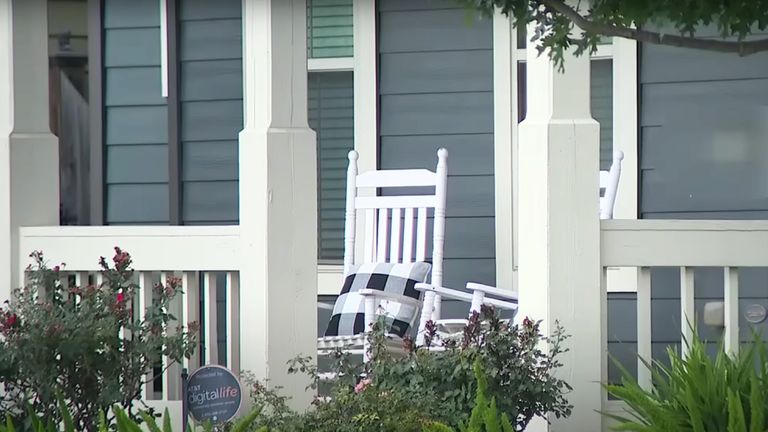
Source: FOX 26 Houston/YouTube
The ducks would climb out of the water and waddle along the river’s edge before jumping back in. The Rowes’ would be sitting there, watching and smiling. However, over the course of a few years, that pleasant smile would turn into a stressful nightmare.
Welcome to Bridgeland
Bridgeland is a planned community located in Cypress, Texas – a small town in the southeastern part of the state just a few miles outside the hustle and bustle of downtown Houston. One thing this community takes pride in is the lakes and streams that surround the houses, streets, and parks.

Source: jimfeng/Getty Images
In fact, all those natural surroundings are what attract a majority of the residents. That and the tranquil sound, of course. Clean, quiet, and full of nature – who wouldn’t want that?
500 Acres of Nature
The Bridgeland website boasts that the planned community has a total of 500 acres of rivers and lakes! For those wanting some rest from the hot Texas sun, that sounds amazing. All Bridgeland residents are welcome to paddle a canoe along the river or throw in a fishing line to see what they can catch.

Source: jacoblund/Getty Images
Of course, they can also sit by the riverside and simply watch the water. Quite a few varieties of birds are known to frequent the area as well.
Relaxing Riverside
The hundreds of acres of nature in addition to rivers, lakes, and lots of bird-watching opportunities were all things that intrigued George and Kathleen Rowe. What could be more relaxing and pleasant to a retired couple looking for some peace in their later years?

Source: The Neighborhood Score/YouTube
There’s something immensely calming about being near any body of water. Of course, people love lounging at the beach, but there’s also a certain tranquility that comes from sitting by the riverside. The fact that ducks came to say hi made it that much better.
Sweet Life of Retirement
In the beginning, life in the Bridgeland community was grand for the Rowes. George and Kathleen gently slipped into a retirement schedule that provided a pleasant structure to their life. After decades of work, they surely deserved it.
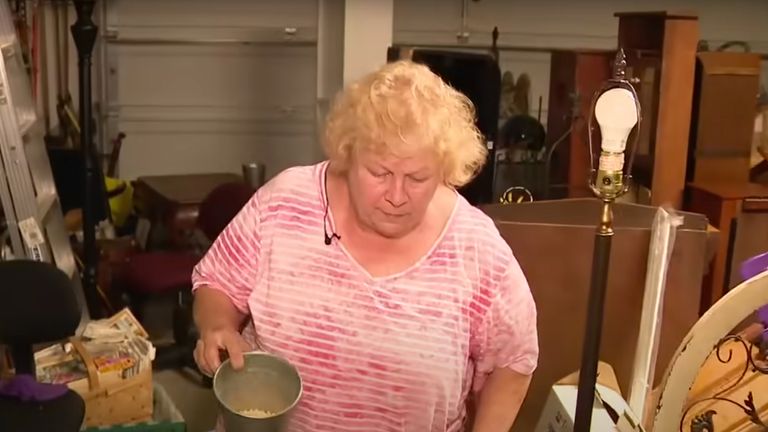
Source: FOX 26 Houston/YouTube
They spent their mornings – and sometimes their afternoons – putting on comfy clothes and mozying out to their beautiful, wooden deck. Once seated, they would sip some coffee and watch the ducks swim along with the river’s current. Retirement was going so sweetly, so no one expected it to turn sour.
The Odd Duck
However, the souring of their retired life began unexpectedly one day. The day started just like any other, with Kathleen out on the porch with a cup of coffee admiring the ducks on the river. Then, she noticed something odd.
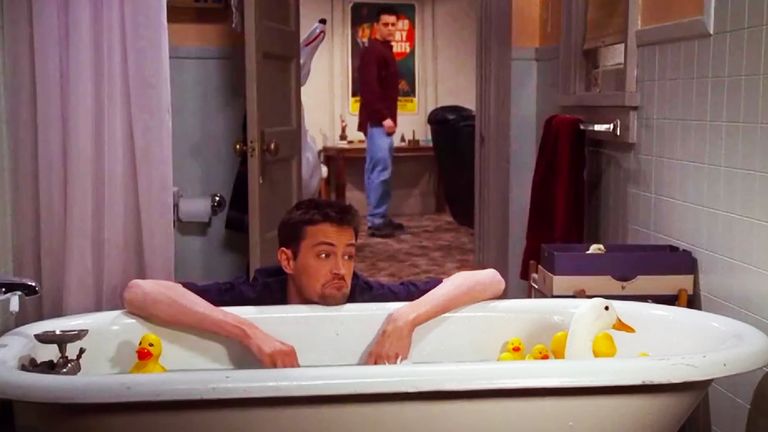
Source: Zayn A./YouTube
To be more specific, she noticed that one of the ducks was acting odd. This duck wasn’t acting like the other ducks. The more Kathleen watched its behavior, the more convinced she became that the duck didn’t grow up in the wild. Instead, it must have been owned before.
A Sad But Common Situation
The thought saddened Kathleen because it meant that someone bought a little duckling and then gave it up to the wild. Unfortunately, this isn’t uncommon. Around Easter and other times of the year, prospective pet owners get it in their heads that it would be nice to own a duck.
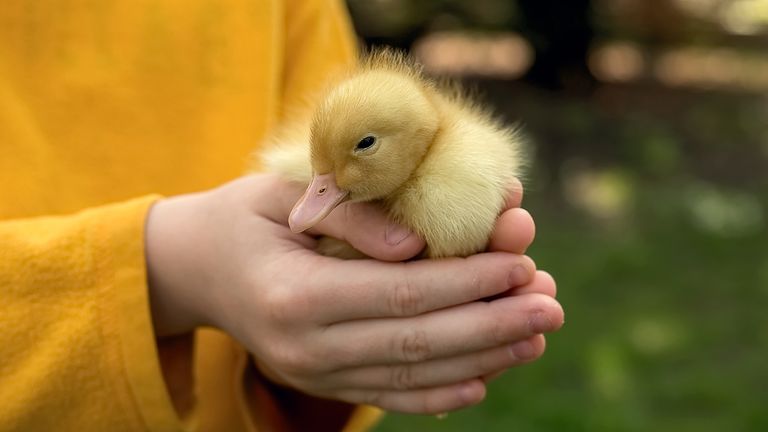
Source: Ekaterina savyolova/Getty Images
Then, shortly thereafter, they realize that the reality of owning a duck is more complicated. Due to laziness or lack of resources, they decide to quietly release the ducks into the wild.
From Domestic to Wild
Although it may seem like the domesticated duck should be able to slip right into a new duck family, that’s far from the case. Being raised around humans means the duck becomes dependent on humans.
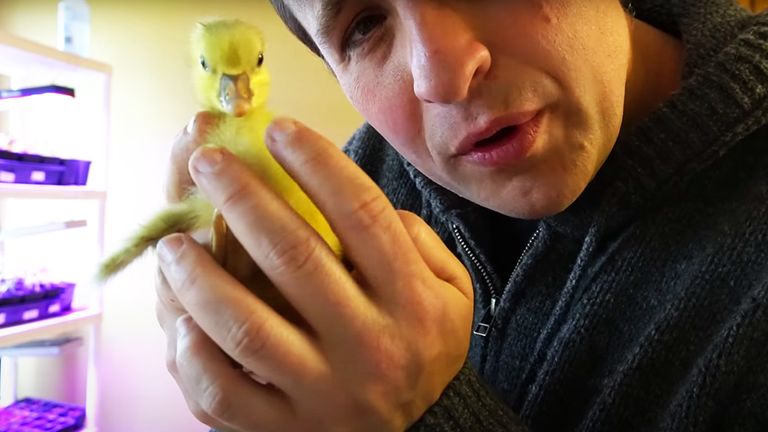
Source: Gold Shaw Farm/YouTube
When those humans are nowhere to be found, the duck becomes confused and doesn’t know what to do, where to eat, or how to look out for themselves more generally. So, although it seems like releasing a duck into the wild is “liberating” it, that liberation often causes a lot of problems for the duck.
Ducks and Humans
Most of the newly liberated ducks don’t have the skills necessary to survive among their duck peers. In those crucial early moments of life, they were totally dependent on humans. So, later on, they return back to humans.
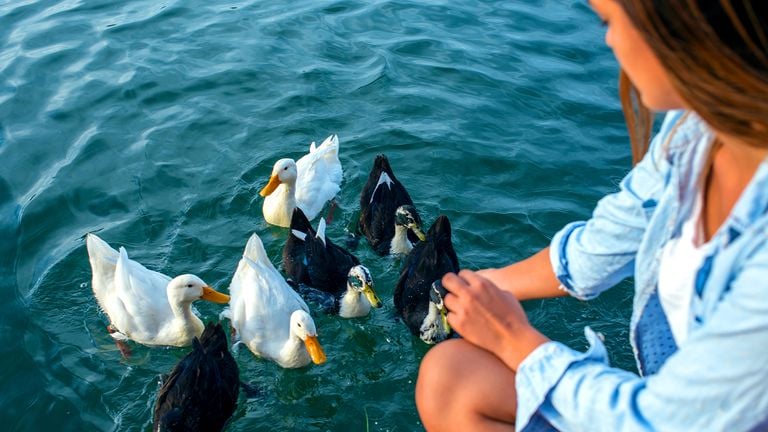
Source: Renato Arap/Getty Images
When the ducks see people sitting on the banks of the river or paddling along in a kayak, they waddle or swim over to explore more. Then, they ask – or demand, more accurately – some food. Most people find it endearing, so they break off some bread crumbs to feed the lost duck.
To Feed or Not to Feed?
Kathleen Rowe was a keen observer of nature. This wasn’t the first time she’d seen a domesticated duck let out into the wild. So, she was absolutely certain that the odd duck she saw before her that fateful day was indeed a wild duck that had once been domesticated.
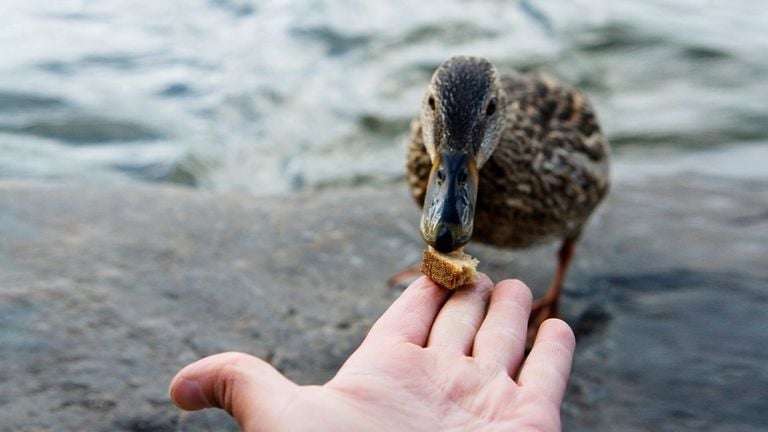
Source: Plattform/Getty Images
Realizing that left her with a gut-wrenching dilemma: should she feed the duck or not feed the duck? If she didn’t feed it, would anyone else? Furthermore, if no one fed it, what would happen to the duck?
Downsides of Feeding Ducks
Unfortunately, these questions aren’t easy to answer. At first glance, it may seem like feeding a hungry duck is simply the right thing to do. On second thought, however, it’s not – which is why there are so many signs telling people not to feed ducks.

Source: Anka100/Getty Images
The main reason is that human food – in particular, bread – isn’t good for ducks. It doesn’t provide the right amount of nutrients for ducks to thrive, and this lack of nutrients can affect their overall health.
Unwelcome Guests
The simple solution to that, of course, is to feed ducks with the right kind of nutritious food. That may solve one problem, however, it brings up another. Namely, ducks get highly attached to being fed by humans.
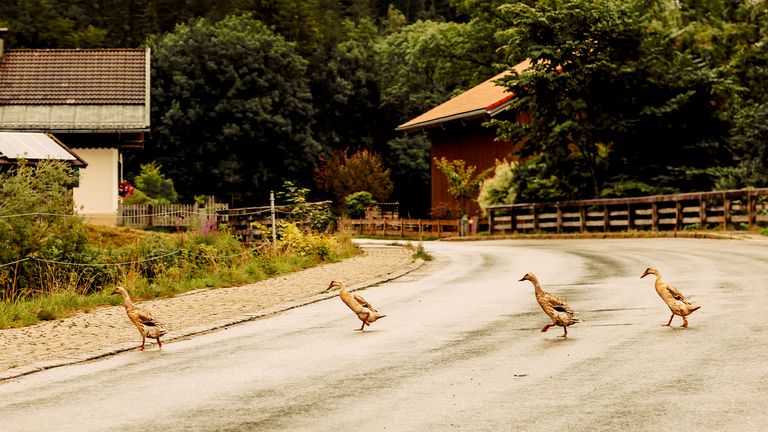
Source: Imagesines/Getty Images
That means, they start to hang out around humans. Sometimes that can be at public parks near the riverside, other times that can mean at people’s homes. At first, it may be cute, but after a few minutes, the quacking and demands can get annoying.
Property Damage
Not only does the quacking and incessant demand for food get annoying to homeowners, but the ducks can also destroy quite a bit of the homeowner’s property. As you can imagine, the destruction of their property only adds to homeowners’ annoyance with the ducks.
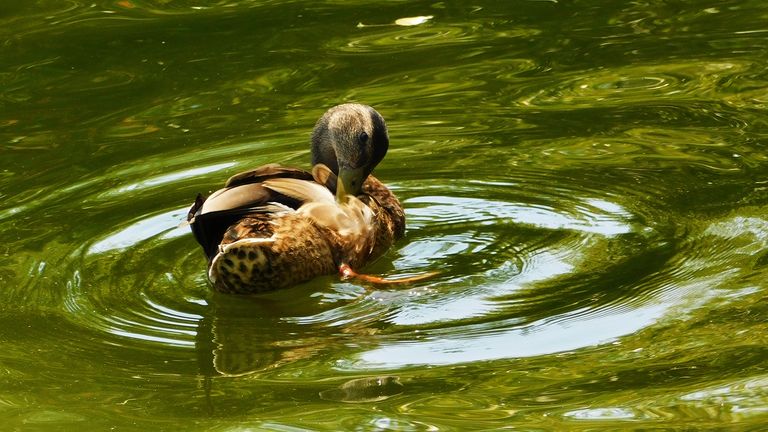
Source: Polina Pasechnyk/Wikimedia Commons|CC BY 4.0
When interviewed by the Houston Chronicle, Richard Gibbons of the American Bird Conservancy said that it’s a problem that “so many communities must work through.” Just as different people have different personalities, different communities work through it in different ways.
Physical Harm
The majority of homeowners and communities dealing with duck damage tend to take a hands-off approach. Basically, they have an uneasy peace where they leave out some food for the ducks and call it a day.
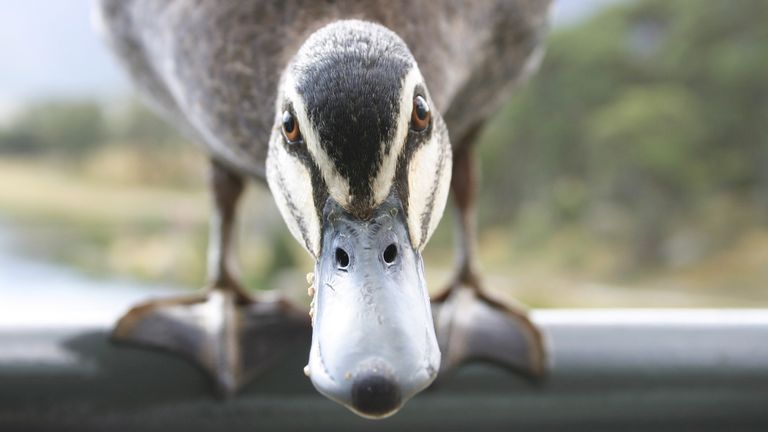
Source: goodmu/Getty Images
Others, however, take a far more drastic and hands-on approach. When the ducks waddle on over, they run out of their homes and actively shoo them away. Sometimes this results in ducks being attacked. Sadly, this can lead to ducks being physically harmed which makes survival more difficult.
Hard Times in Bridgeland
Thankfully, the ducks in Bridgeland never got so out of hand that people felt the need to scare them off with loud shouts or harm them with kicks. However, that doesn’t mean everything was hunky-dory either.

Source: FOX 26 Houston/YouTube
Pretty much every day, Kathleen and her husband George fed some of the ducks that came to their porch. With such easy access to food, the ducks came back regularly. Unfortunately, this angered the Rowes’ neighbors, and that anger boiled over into legal action.
How Much?
Bridgeland’s homeowners’ association decided to file a lawsuit against Kathleen and George Rowes. In it, they claimed that the couple broke the rule against feeding animals. Furthermore, they wanted the animal feeding situation to end.

Source: FOX 26 Houston/YouTube
Fair enough. It’s true that the Rowes were guilty of feeding the ducks for quite some time. So, they were asked to stop. However, that wasn’t the end of the lawsuit. It also sought to fine the Rowes for their behavior – a fine that could reach $250,000!
Getting Ready for Legal Battle
Although it may seem unfair to charge someone $250,000 for feeding ducks, that was the reality at hand. So, George and Kathleen had to move on to preparing for a costly legal battle. As a newly retired couple on a fixed income, they didn’t have a spare $250,000 lying around.

Source: FOX 26 Houston/YouTube
They did have the bungalow, however. So, they had to make the difficult decision of whether or not to put it up for sale. Would this lawsuit cost them their retirement home?
Motherless Ducks
What started out as a simple desire to feed a hungry duck has led to a legal battle that may cost the Rowes their retirement home. It’s scary and tragic how things escalate so quickly.

Source: FOX 26 Houston/YouTube
Despite all the chaos and trouble surrounding the situation, Kathleen still has fond feelings for the ducks. She told the Houston Chronicle that the ducks “never had a mother” and that she felt like she was stepping into that role for them. Unfortunately, that role comes with a high price tag.
Hiring Legal Help
To try and fight the lawsuit correctly, Kathleen and George have decided to seek legal help. They reached out to Richard Weaver, a local lawyer, to represent them in a court of law. Weaver says the lawsuit is unjustified because the Rowes haven’t done anything wrong.

Source: FOX 26 Houston/YouTube|Unseen Histories/Unsplash
To be more specific, Weaver said that there was “nothing in the community rules that would prohibit a person from feeding the ducks.” If that’s the case, then the Rowes should be off scot-free.
Breaking Rules
However, that doesn’t seem to be the case – at least from the perspective of the Bridgeland homeowners association. Although they don’t specifically say feeding ducks is against the rules, they point out two related rules.

Source: iceninephoto/Getty Images
First, the rule against making the community dirty. Second, the rule against disrupting the native flora and fauna. Since feeding the ducks can “disrupt” them a bit and lead to uncleanliness, there’s a strong case to be made that the Rowes broke those two rules.
Kathleen’s Defiance
Although it may seem ridiculous to outsiders, the simple act of feeding ducks has ballooned into a massive legal drama covered by one of the largest newspapers in the area. First came the shock of a $250,000 threat, and then the sobering reality of having to sell your house.

Source: FOX 26 Houston/YouTube
Through it all, however, Kathleen and George still manage to keep it together. Shockingly enough, Kathleen still enjoys feeding the motherless ducks – and she isn’t afraid to hide it! She fed the ducks as a reporter interviewed her.
Kathleen’s Coverage
That reporter was covering Kathleen and George’s story for the Houston Chronicle, a popular Texan newspaper. Kathleen was appropriately dressed in a “Life is a hoot” T-shirt. During the reporter’s interview, Kathleen saw a group of ducks waddling nearby the house.

Source: FOX 26 Houston/YouTube
She called out to them to stop. The ducks stopped, but they were confused about what to do next. Kathleen reassured them by saying, “I’ll come over to you!” She knew they were hungry, so she brought over a tasty treat.
A Bittersweet Feeding
That treat was a bowl full of corn. Once she got closer to the patiently waiting ducks, Kathleen scooped up a handful of corn and held out her hand so the ducks could eat from it. They did.
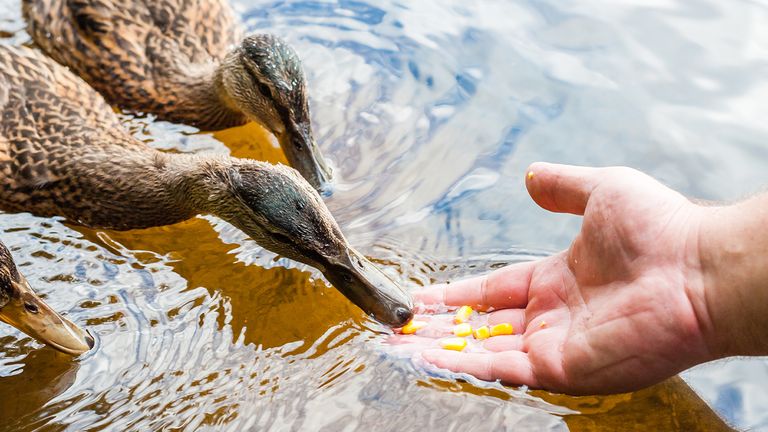
Source: YKD/Getty Images
Then, Kathleen took a step back and dropped some of the corn on the ground near the water’s edge. The ducks came over to feast. George looked on from afar, smiling. However, inside, he wished this simple gesture wasn’t fraught with so much tension.
Missing the Ducks
During the reporter’s coverage for the Houston Chronicle, she ended up spending quite a lot of time with George and Kathleen Rowe. Alongside getting the important details of the story, the reporter wanted to know how the couple felt about what was happening.

Source: FOX 26 Houston/YouTube
Unsurprisingly, both of them were saddened that it had come to this. Neither of them wanted to leave their retirement bungalow or miss out on feeding the ducks. “I’m going to miss them terribly,” Kathleen said, and her husband concurred.
Community Opinions
What do the neighbors think about the situation? Even if they think the Rowes broke the rules, do they think a $250,000 fine is justified? One neighbor named Matt Hill gave his thoughts on the whole matter.

Source: Jasmin Merdan/Getty Images
Suing the couple for such a large sum of money was way too extreme for him. However, he also thought that feeding the ducks was creating a problem that needed to be addressed. “They’re tearing up everybody’s yard,” Matt said of the ducks.
An Avoidable Problem
Although feeding ducks can cause problems in other people’s yards, the blame doesn’t lie solely with the people feeding the ducks. Kathleen started giving the ducks some food because they didn’t know how to survive on their own.
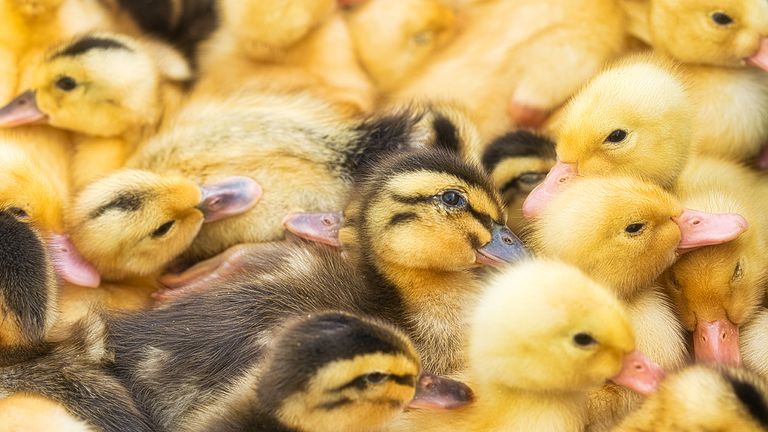
Source: iluhanos/Getty Images
In other words, if the ducks grew up in the wild or if the pet owners kept them and raised them, then this problem wouldn’t arise in the first place. Unfortunately, the original owners released them into the wild and now the Rowes risk losing their home because of it.
